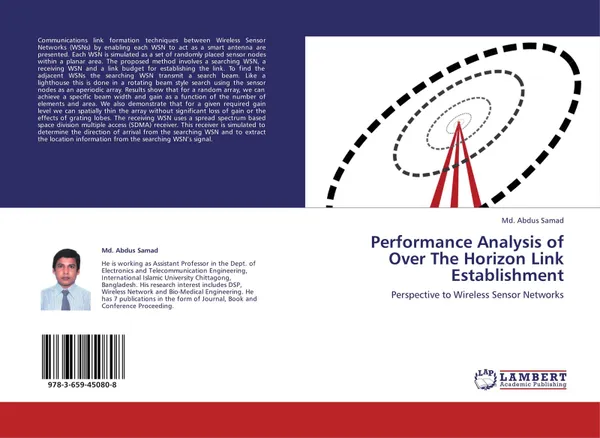Performance Analysis of Over The Horizon Link Establishment
📖 Communications link formation techniques between Wireless Sensor Networks (WSNs) by enabling each WSN to act as a smart antenna are presented. Each WSN is simulated as a set of randomly placed sensor nodes within a planar area. The proposed method involves a searching WSN, a receiving WSN and a link budget for establishing the link. To find the adjacent WSNs the searching WSN transmit a search beam. Like a lighthouse this is done in a rotating beam style search using the sensor nodes as an aperiodic array. Results show that for a random array, we can achieve a specific beam width and gain as a function of the number of elements and area. We also demonstrate that for a given required gain level we can spatially thin the array without significant loss of gain or the effects of grating lobes. The receiving WSN uses a spread spectrum based space division multiple access (SDMA) receiver. This receiver is simulated to determine the direction of arrival from the searching WSN and to extract the location information from the searching WSN’s signal.
Мнения
